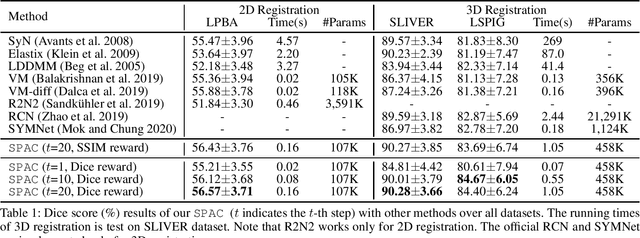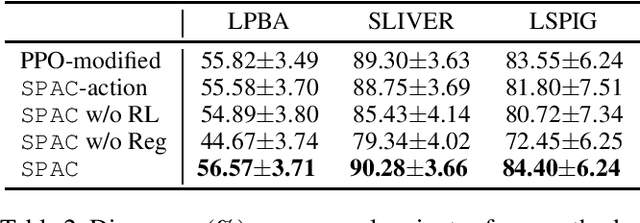Stochastic Planner-Actor-Critic for Unsupervised Deformable Image Registration
Paper and Code
Dec 14, 2021



Large deformations of organs, caused by diverse shapes and nonlinear shape changes, pose a significant challenge for medical image registration. Traditional registration methods need to iteratively optimize an objective function via a specific deformation model along with meticulous parameter tuning, but which have limited capabilities in registering images with large deformations. While deep learning-based methods can learn the complex mapping from input images to their respective deformation field, it is regression-based and is prone to be stuck at local minima, particularly when large deformations are involved. To this end, we present Stochastic Planner-Actor-Critic (SPAC), a novel reinforcement learning-based framework that performs step-wise registration. The key notion is warping a moving image successively by each time step to finally align to a fixed image. Considering that it is challenging to handle high dimensional continuous action and state spaces in the conventional reinforcement learning (RL) framework, we introduce a new concept `Plan' to the standard Actor-Critic model, which is of low dimension and can facilitate the actor to generate a tractable high dimensional action. The entire framework is based on unsupervised training and operates in an end-to-end manner. We evaluate our method on several 2D and 3D medical image datasets, some of which contain large deformations. Our empirical results highlight that our work achieves consistent, significant gains and outperforms state-of-the-art methods.
 Add to Chrome
Add to Chrome Add to Firefox
Add to Firefox Add to Edge
Add to Edge